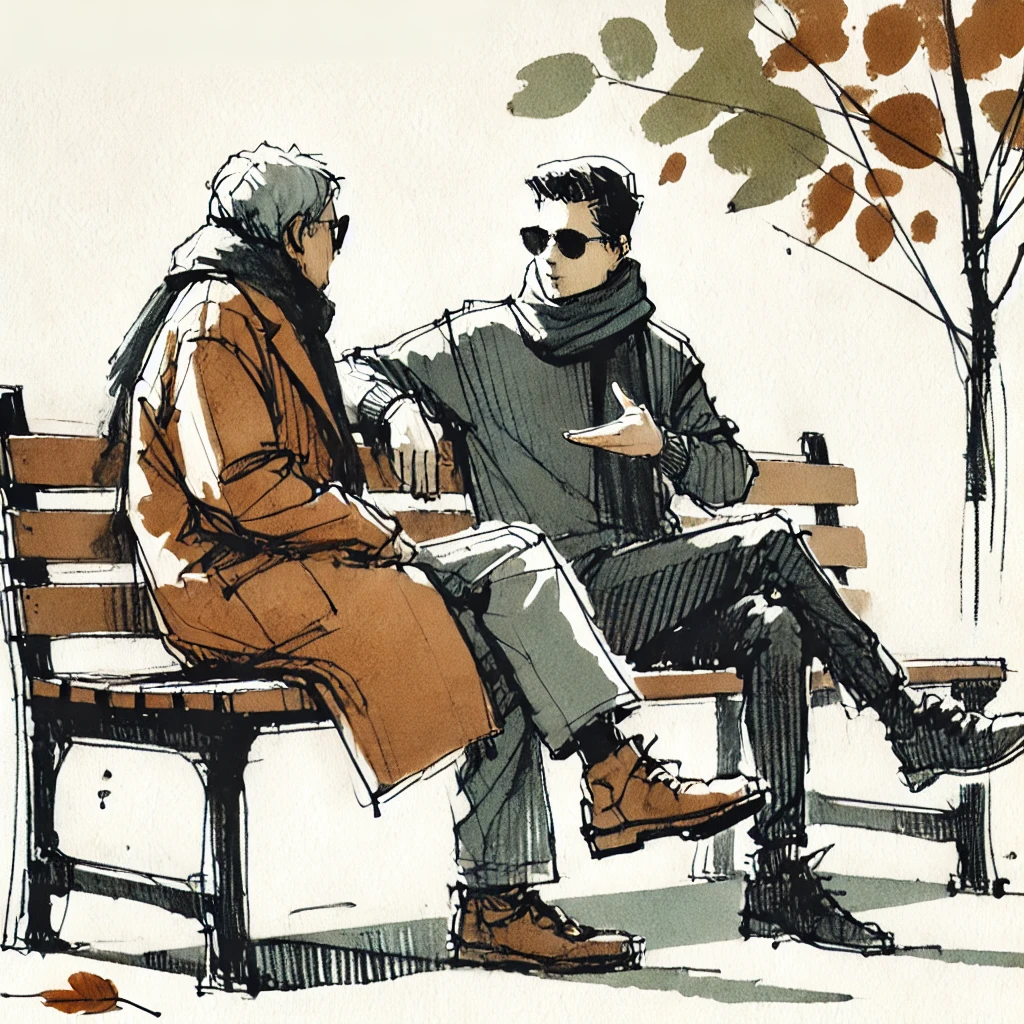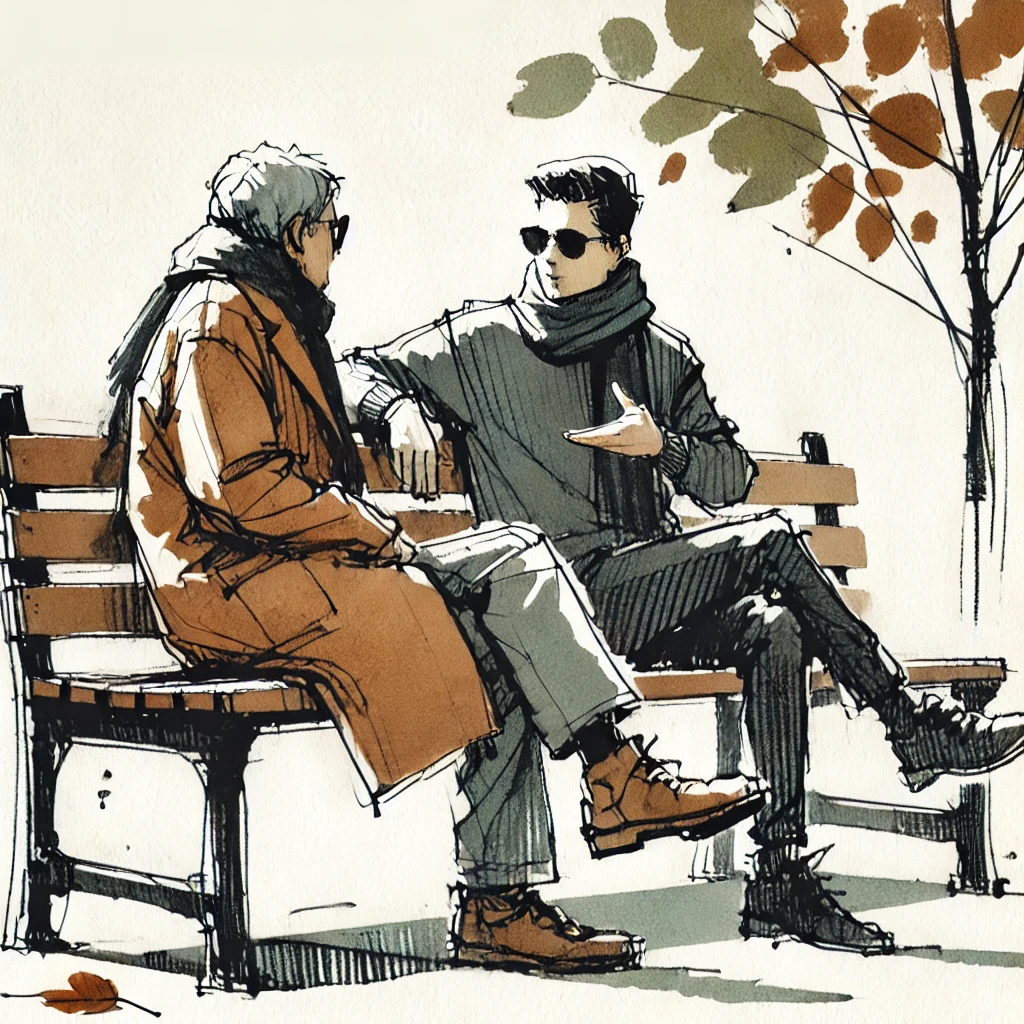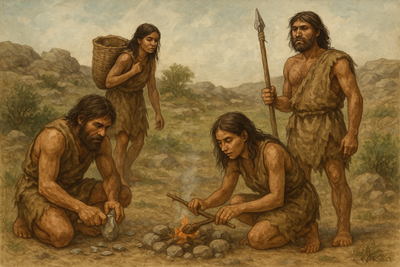The Power of Curiosity in a Polarized World

We live in divided times.
Not just politically.
Not just culturally.
But in the way we see each other.
There are lines we no longer cross. Conversations we no longer risk. People we no longer listen to, because they’ve already been labeled.
That’s polarization. Not the presence of difference, but the absence of space between us.
And yet, quietly, patiently, there’s something that can begin to reopen that space.
It doesn’t demand agreement. It doesn’t shout. It simply asks: “What if there’s more to this story?”
That something is curiosity.
Polarization flattens people
Polarization turns complex lives into simple characters. The out-of-touch elite. The angry activist. The ungrateful immigrant. The uninformed voter. Once someone becomes a type, it’s easy to stop listening. You already know the script.
But real lives aren’t scripts. Real people carry contradictions, histories, hopes, and fears that don’t fit neatly into headlines or hashtags. The truth is: we rarely know the story, at least not the whole one, until we ask. Until we sit down, face to face, and listen without rushing to reply. Until we care enough to wonder what shaped someone’s views, what burdens they carry, what dreams they’re still holding onto.
It’s harder. It takes time. It requires humility. But that’s where understanding begins.
Curiosity isn’t about changing others
Some people won’t soften. You’ll ask thoughtful questions, and they’ll just double down. You won’t change their mind.
But that’s not what curiosity is for.
It’s not a tactic or a strategy. It’s a way of being. A way of choosing how you want to move through the world, not to convert others, but to remain human in a space that encourages the opposite.
Curiosity says: I’m not here to win. I’m here to understand.

The world becomes more subtle when you stay curious
You begin to notice things. The man who rants about politics, maybe he’s been ignored by every system meant to protect him. The woman who always seems angry, maybe she’s tired of being talked over. The person who says “I’m not racist, but…” often isn’t filled with hatred, but shaped by fear, unfamiliarity, or a lack of meaningful connection. Still harmful. Still needs to be challenged. But more human than we tend to allow.
None of this excuses harm. But it explains some of it. And when we understand more, we fear less and judge with more care.
It won’t always go well
Sometimes people shut down. Sometimes they talk louder. But curiosity still leaves a trace, not in them, maybe not yet, but in you.
You walk away less rigid. More grounded. More willing to live your values quietly, instead of defending them loudly.
Curiosity takes courage.
To stay soft when the world wants you sharp.
To stay open when it’s easier to shut down.
To say “Tell me more,” when you’re already sure you know the answer.
You don’t have to agree.
You don’t have to accept every view or tolerate every belief.
But if you want to live in a world that holds space for difference, then you must keep asking the kind of questions that make space for people, not just their opinions, but their histories, their fears, and their full, complicated selves.
Not because it will change them. But because it will change how you see.
A few ways to practice curiosity in a polarized world:
- Start with a pause. When you feel yourself reacting, especially with judgment or frustration, take a breath before responding. That moment of stillness is where curiosity begins. It shifts you from defending your position to exploring theirs.
- Ask questions with care, not as a trap. Try: “Can you help me understand what led you to that view?” or “What’s your experience with this?” The goal isn’t to win the argument, but to learn something you didn’t know before.
- Look beyond your bubble. Follow people, read books, and listen to podcasts from voices that challenge your worldview, especially those with lived experiences different from your own. Not to agree, but to expand what you consider possible.
- Interrupt casual generalizations. When someone says something like “They never try to fit in” or “That generation is just lazy,” ask gently: “Who do you mean when you say ‘they’?” or “Have you seen it differently anywhere?” You’re not attacking, you’re inviting reflection.
- Turn curiosity inward, too. When something offends or unsettles you, ask: “Why did that hit me the way it did?” Sometimes, what we resist is pointing to something unexamined in ourselves.
Curiosity won’t erase our differences.
It won’t guarantee harmony. It won’t prevent conflict. It doesn’t mean giving up your convictions, diluting your values, or staying silent in the face of harm.
You can hold strong opinions and still stay curious.
You can challenge injustice and still wonder what shaped someone’s view.
You can refuse harmful ideas and still recognize the humanity of the person who holds them.
Curiosity doesn’t weaken conviction. It deepens it. It grounds it. It makes sure that what you stand for is tethered not just to slogans or sides, but to the complicated, sacred reality of human lives.
Because in the end, curiosity isn’t about being right.
It’s about staying human.





